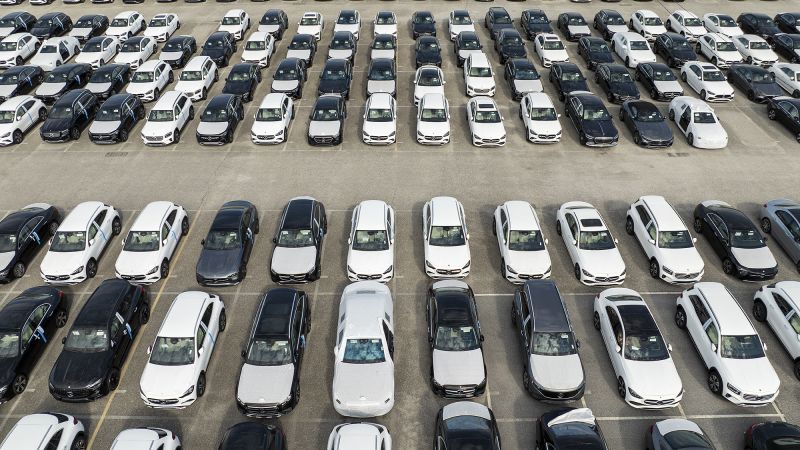In a significant development for the U.S. automotive industry, Commerce Secretary Howard Lutnick confirmed on Monday, that a deal has reportedly been reached with automakers aimed at alleviating tariffs imposed on vehicles. This revelation points toward a potential policy shift that could offer a critical reprieve for a sector that has been grappling with the adverse impact of heavy tariffs. The ongoing trade debates and initial tariff structures have put considerable pressure on the automobile market, prompting urgent responses from various industry stakeholders.
Earlier on the same day, The Wall Street Journal highlighted that President Donald Trump is poised to announce a new tariff framework that refrains from adding to the existing burdens on imported vehicles and parts. Presently, there exists a substantial 25% tariff on nearly all imported cars, in addition to similar tariffs on steel and aluminum—key materials extensively utilized in automotive manufacturing. These tariffs have raised concerns regarding cost inflation for vehicles and have significantly complicated the financial landscape for both manufacturers and consumers.
Lutnick praised the agreement, claiming it represents a substantial victory for Trump’s trade policy. He emphasized the importance of rewarding domestic manufacturers and providing breathing space to those companies that are committed to investing in American production. The announcement reflects a broader intention to bolster domestic manufacturing capabilities while navigating the complexities involved with international trade regulations.
While Lutnick spoke positively about the agreement, the specifics pertaining to the arrangement were not disclosed. A White House official informed Reuters that further details would come to light on Tuesday, coinciding with Trump’s planned visit to Michigan, a state recognized as a cornerstone of the American automotive sector. The visit is particularly symbolic, marking the first 100 days of Trump’s second term and underscoring the administration’s focus on revitalizing the manufacturing landscape in the U.S.
In preparation for these potential changes, automakers, dealerships, and consumers alike have been anxiously anticipating the ramifications of the current tariff framework. Experts have warned that the existing 25% tariff could increase the cost of constructing or importing vehicles by thousands of dollars, consequently diminishing the number of cars available on the market. Concerns have escalated over the machinery used to build vehicles, as the administration is also looking to impose tariffs on auto parts. These measures could further exacerbate the cost of cars, given that all vehicles made in the U.S. incorporate various imported components.
The automotive industry is vociferously advocating for tariff relief, arguing that the current import taxes pose a substantial threat to American consumers’ financial well-being while also straining their supply chains. Statements from industry leaders emphasize gratitude toward the Trump administration for considering measures that might safeguard the domestic automotive workforce. Mary Barra, CEO of General Motors, issued a statement recognizing the President’s role in advocating for the U.S. automobile industry and the millions of American jobs connected to it.
Barra mentioned, “We believe the President’s leadership is helping level the playing field for companies like GM and allowing us to invest even more in the US economy.” This statement reflects a consensus within the industry regarding the necessity for ongoing dialogue with federal authorities to navigate the challenges posed by tariffs.
As developments unfold, it is worth noting that the automotive industry has been in turmoil due to the rapid changes in tariff policies. The situation is likely to worsen as a new 25% tariff on many imported auto parts is expected to be implemented shortly. While sources suggest the possibility of reduced rates, the overarching implications of tariff adjustments remain a significant concern for automakers.
The proposed changes to the tariff structure would reportedly be retroactive, which could provide refunds to automakers for previously paid tariffs that would no longer apply. However, Trump’s historical tendency to shift position on tariff-related policies raises questions regarding the permanence of any new measures. This evolving story highlights the intricate interplay between politics, economics, and the automobile industry as stakeholders await further clarification and a formal announcement from the President. More updates are anticipated as this situation develops, reflecting the high stakes involved for numerous businesses and consumers nationwide.



